Time for climate action to go viral
Few would have predicted on New Year’s Day 2020, that world headlines just a few weeks later would be monopolized by a devastating tragedy. A virus which has permeated all four corners of the globe and changed our daily existence in such fundamental ways that some argue life will never be quite the same again.
By Fady Jameel, Deputy President and Vice Chairman, Abdul Latif Jameel
The way the novel Coronavirus SARS-Cov-2, (which causes the respiratory disease known as COVID-19) has so swiftly derailed modern society and monopolized media headlines, has also reopened long-simmering debates about mankind and our relationship with the planet and nature.
It becomes increasingly hard to defend the position that we, as some have claimed, are mere passengers on the planet’s rhythmic cycles; rather, the current pandemic looks more like a confirmation that we are the catalysts for many of the environmental changes we are witnessing. Indeed, if coronavirus teaches us anything, it is that preventing a recurrence of this catastrophic outbreak will take a whole new way of thinking.
Now is not the time to quietly dial down the ongoing issue of environmental damage, but instead to bring it front and center – to acknowledge that civilization and nature share the same complex and delicate ecosystem. And to finally accept that ours is the generation destined, more than any other, to define the fate of our children, and our children’s children.
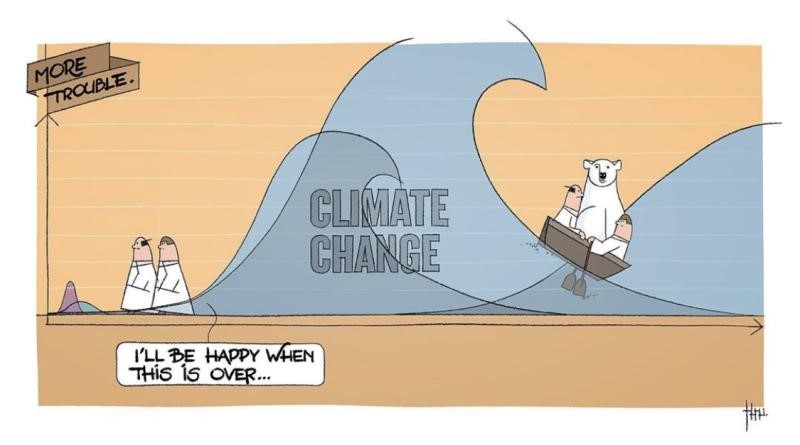
Wrong time to side-line climate change debate
Glen Peters, director at the Center for International Climate Research (CICERO) in Oslo, said in April 2020, that the fight against coronavirus would likely ‘pause’ any progress being made in the fight against climate change.
“In the policy discussions for the next 6-12 months climate is probably not going to be mentioned,” he said. “It is going to be about coronavirus and economic recovery.” [1]
It’s easy to rationalize why. After all, within just a few months of half the world’s population being under lockdown conditions, Mother Nature appears – superficially, at least – to be doing a pretty rapid job of healing her wounds.
We’ve all heard the stories and see the pictures: crystal clear canals flowing through Venice; smog-free days from Delhi to Beijing; fish and birds reclaiming waterways and flight routes long-abandoned to pollution.
At the time of writing, global air traffic has dropped by two-thirds from pre-crisis levels, petrol sales in the US have fallen by almost a half,[2] and CO2 emissions are estimated this year to drop by some 7.5%.[3] Across the Atlantic, daily emissions in the EU have fallen by approximately 58%.[4] And in the UK, London is experiencing 36% lower nitrogen dioxide levels than the five-year average for the season.[5]
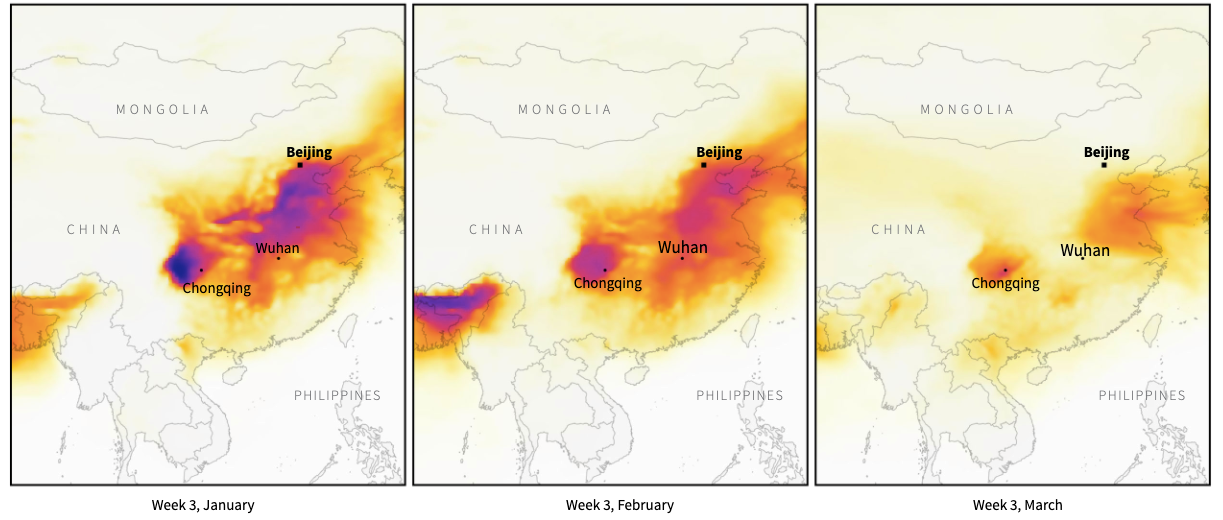
Surely, therefore, it must be far simpler than we ever expected to reverse our decades of ecological misdeeds.
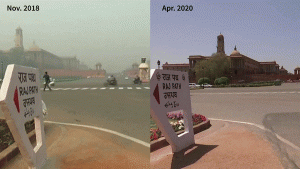 All we have to do is, quite literally, take our foot off the gas for a short while and – hey presto! – the planet magically reasserts its environmental balance.
All we have to do is, quite literally, take our foot off the gas for a short while and – hey presto! – the planet magically reasserts its environmental balance.
Except, of course, nothing is as straightforward as it seems. Putting our lives on hold, pandemic-style, is estimated to cost the world economy up to US$ 8.8 trillion.[6] Hardly any country has escaped the calamity of plunging GDP and mounting debt. Balance sheets and bottom lines will be pummeled, from government budgets right down to individual savings accounts. People are entrenched in their homes, often living off state aid. Personal liberties have been curtailed. In short, we dream of a post-virus world because we want our old lives back.
And therein lies a problem.
A life of fear and inactivity is barely more palatable than one based around pollution-emitting industry. And once the ‘new normal’ is established, it might not take long to undo much of this brisk (and wholly accidental) environmental healing.
The UK’s Independent newspaper notes that the fall in greenhouse gas emissions experienced after the global financial crisis of 2008, was short lived – rebounding 5.1% in the later recovery.[7] It quotes climate scientist Corinne Le Quéré from the University of East Anglia as saying that because the coronavirus pollution dip is not due to structural changes, “as soon as confinement ends, I expect the emissions will go back close to where they were”.
And even if by some miracle pollution did remain at this comparatively low level? Well, it still would not be enough.
The UN’s Emissions Gap Report 2019 warns greenhouse gases need to fall 7.6% annually even to limit future global warming to 1.5 ⁰C.[8] As recently as late March 2020, US research center The Breakthrough Institute forecast an overall 2020 emissions decline of just 0.5-2.2% – presuming the second half of the year achieves some kind of economic fight-back.[9]
As a society we would be well advised to shape our response to viral threats and climate change with equal urgency – since the two appear inextricably linked.
Opening eyes and minds to a self-inflicted scourge
Left alone, ecosystems are diverse, self-regulating systems. Natural bio-genetic diversity prevents pathogens gaining a foothold and spreading rapidly through populations and across species. But by ‘streamlining’ natural ecosystems for the convenience of monoculture, mankind has reduced biodiversity at what the UN describes as “an unprecedented rate”.[10] Promoting genetic uniformity through herds and flocks, we have produced fertile conditions for emerging pathogens and hosts to prosper.
Johannes Vogel, director-general of the Leibniz Institute for Evolution and Biodiversity Research, notes that pathogens “break through species boundaries because we are exploiting natural resources without respect”. He cites the example of overfishing in African coastal waters forcing local communities to rely on bushmeat for sustenance, encouraging cross-species transference of pathogens.[11]
Probe deeper and the plot thickens. Consider how deforestation for agriculture and timber shrinks the buffer zone between people and animals, compelling the latter to live in closer confines with human habitations.
From 1990 to 2016, the world lost 1.3 million square kilometers of forest.[12]
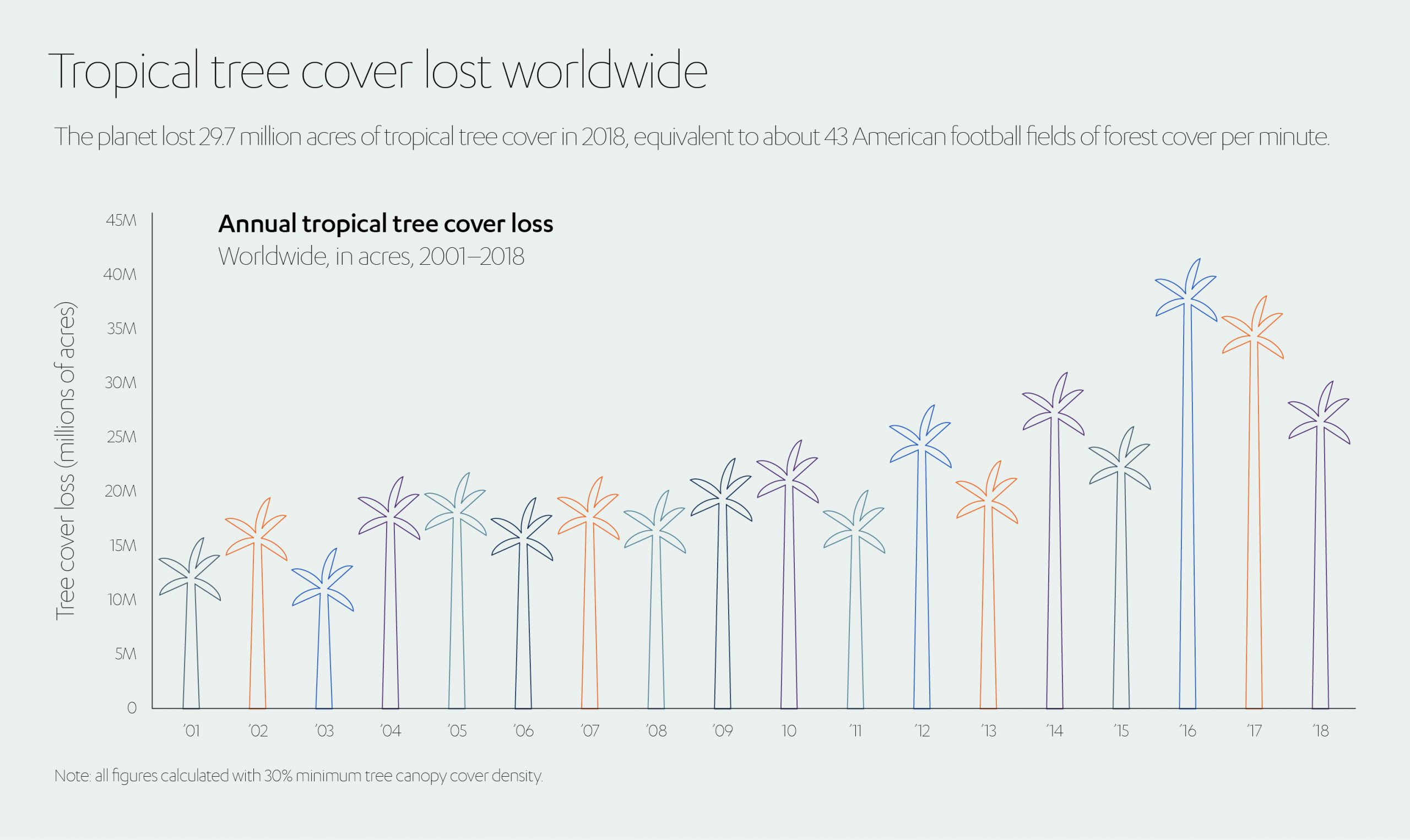
Andrew Norton, director of the International Institute for Environment and Development (IIED), affirms that:
“…land use change and deforestation are primary global drivers of biodiversity destruction. They heighten the risk of further pandemics by bringing humans into contact with new threats such as the coronavirus. Every species lost is an irreversible event that decreases the resilience of natural and human systems on a permanent basis.”[13]
And remember that the very ‘wet markets’ identified as the epicenter of today’s pandemic (markets trading wild animals as well as pets and farm animals) exist only to feed human populations whose numbers – globally – are beginning to overwhelm existing resources.
A foreseeable future
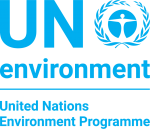 At least four years before SARS-Cov-2 sprang from nowhere to change the world, the United Nations Environment Programme (UNEP) sounded the alarm in its ‘Frontiers 2016 Report’, recording that, on average, a new infectious disease was emerging in humans every four months.
At least four years before SARS-Cov-2 sprang from nowhere to change the world, the United Nations Environment Programme (UNEP) sounded the alarm in its ‘Frontiers 2016 Report’, recording that, on average, a new infectious disease was emerging in humans every four months.
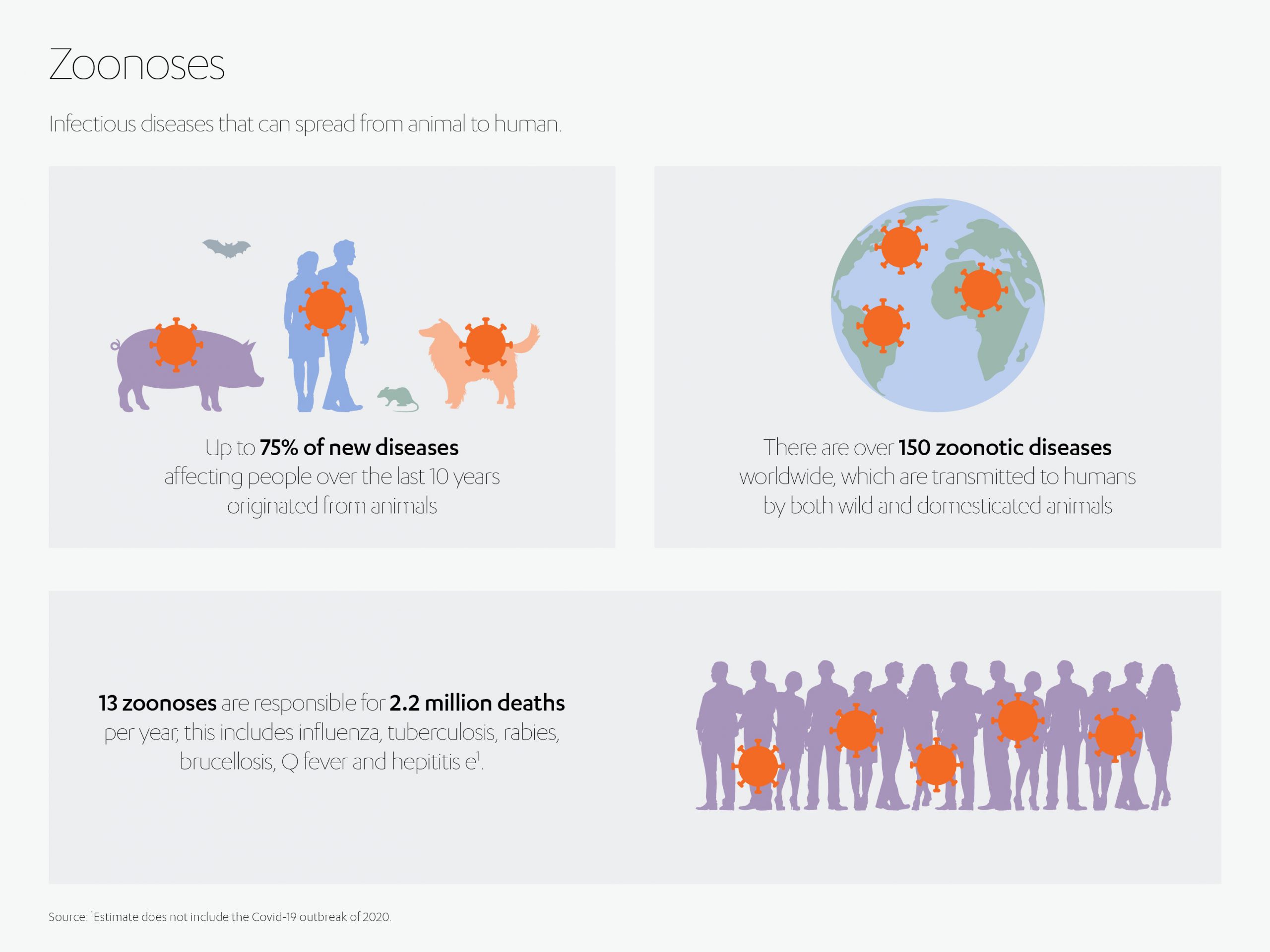
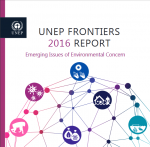 The UNEP report, prophetic in hindsight, stated: “Never before have so many animals been kept by so many people – and never before have so many opportunities existed for pathogens to pass from wild and domestic animals through the biophysical environment to affect people causing zoonotic diseases or zoonoses.”[14]
The UNEP report, prophetic in hindsight, stated: “Never before have so many animals been kept by so many people – and never before have so many opportunities existed for pathogens to pass from wild and domestic animals through the biophysical environment to affect people causing zoonotic diseases or zoonoses.”[14]
The experts behind the report recognized that some 75% of all emerging infectious diseases in humans were of zoonotic origin, including such media hysteria provoking pathogens as Ebola, MERS and SARS.
They depicted “a worldwide increase in emerging zoonotic diseases, outbreaks of epidemic zoonoses as well as a rise in food-borne zoonoses globally, and a troubling persistence of neglected zoonotic diseases in poor countries”.
As probably the apex predator on the planet, as a species, and as custodians of our world, we failed at the time to act on this message . . . and failed miserably.
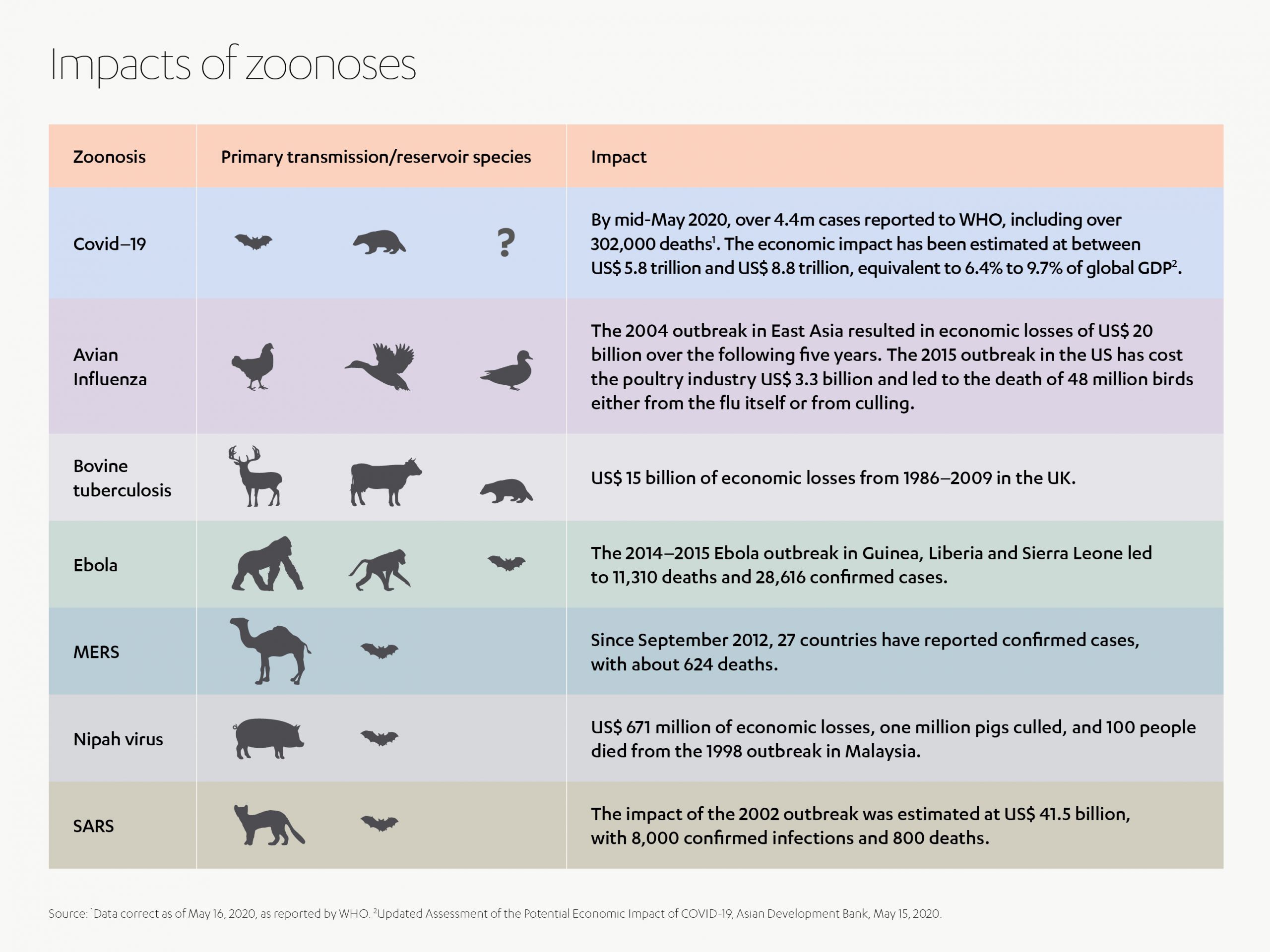
The figure below shows how zoonotic diseases are ‘amplified’ through domestic animal (and human) populations with parasitic vector carriers, e.g. fleas, ticks, mosquitos, and how the homogenization of domestic animal populations (particularly livestock) and the encroachment of human residential and farming land into the wild is enabling the crossover of pathogens to humans.
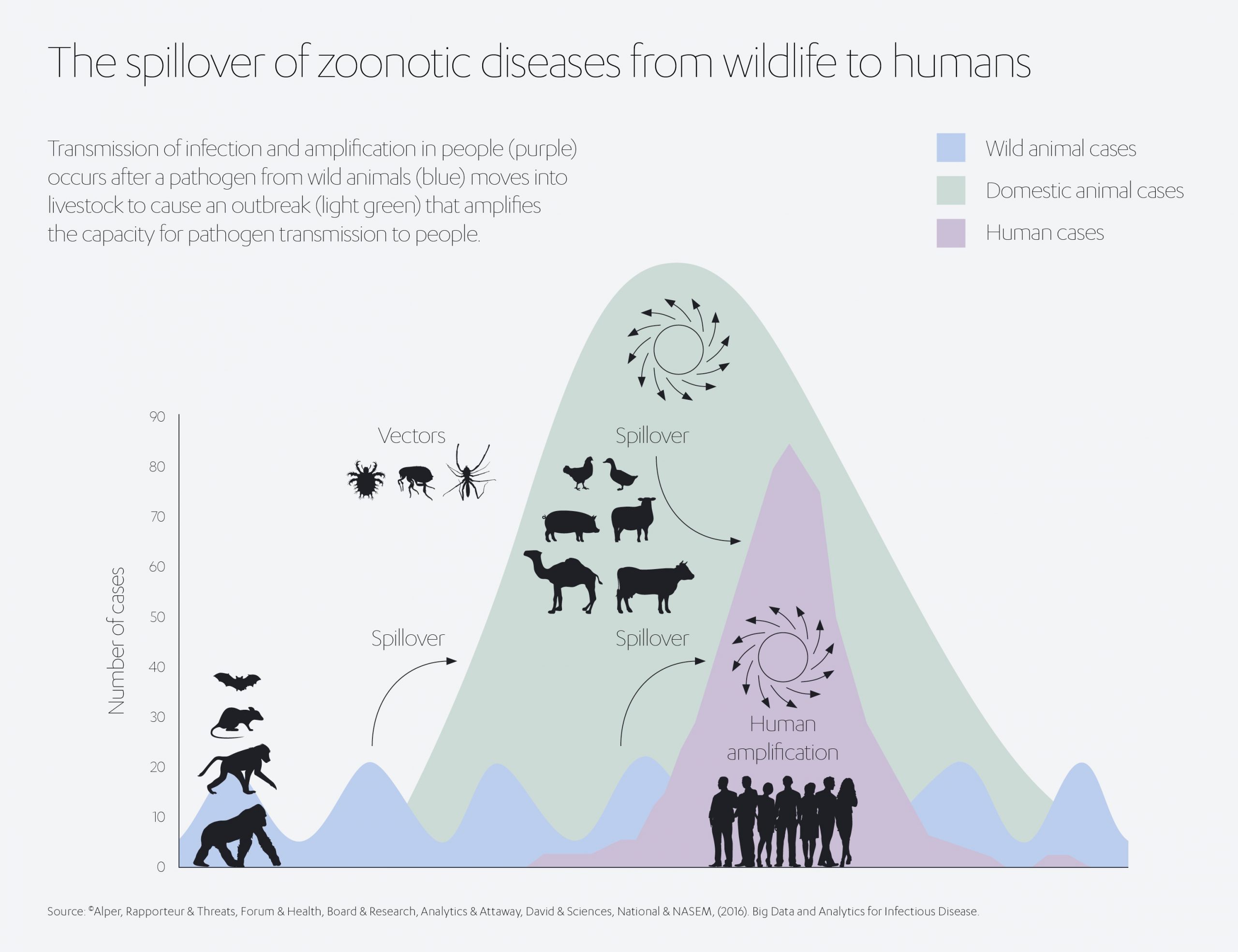
Perfect storm of overpopulation, urbanization, mobility
Those same insights are sobering as, despite repeated talk of vaccines and treatments, evidence suggests coronaviruses might well be here to stay.
As this sobering thought continues to cast its dark shadow, scientists are near-unanimous in one conclusion: COVID-19 will not be the last global pandemic.
UNEP notes that changes in temperature, humidity and seasonality all directly impact the survival of microbes in the environment, suggesting outbreaks of coronavirus and its cousins will occur periodically – and unpredictably – as the climate evolves.[15]
Developing countries must be especially watchful.
“Rapid climate change is challenging to those with fewer resources,” UNEP cautions, “leaving them more vulnerable and amplifying their risk of harm from the spread of zoonotic disease.”
Increasing urbanization drives consumer demand for meat products near cities. This has caused more livestock farming around population centers, increasing potential pathogen exposure.
Transportation is another key contributor to climate change (airlines increased CO2 emissions by 32% between 2013 and 2018[16]) while also increasing the geographic dispersal of diseases once they emerge. Every day, millions of people travel between different countries in a matter of hours – contributing to the pandemic becoming a runaway global ‘success’, infecting “almost every country in the world within three months of the first reported case”.[17]
In striving to create a world, tailor-made for ourselves, we have unwittingly made ourselves beholden to our microscopic enemy – the virus.
Why we must have hope, but also take heed
Global management consultancy McKinsey & Company believes environmental resilience should be core to any recovery plan.[18] Indeed, to the question of whether the world can presently afford to pay attention to climate change, McKinsey simply concludes that we cannot afford to do otherwise.
In its April 2020 article Addressing climate change in a post-pandemic world, McKinsey states:
“The current pandemic provides us perhaps with a foretaste of what a full-fledged climate crisis could entail in terms of simultaneous exogenous shocks to supply and demand, disruption of supply chains, and global transmission and amplification mechanisms.”
‘Solving’ pandemics, like ‘solving’ climate change, demands a profound attitude shift – it is this that I strongly advocate for.
We must jettison short-term systems in favor of long-term resiliency. That applies to healthcare apparatus, to infrastructure services, to supply chains, to conurbations.
Calling for true global coordination and cooperation, McKinsey reminds us that “in climate change, as in pandemics, the costs of a global crisis are bound to vastly exceed those of its prevention”.
The same four strategies that can counter environmental risks will also help bolster us against future pandemics:
- shortening and localizing supply chains
- substituting animal proteins with plant proteins
- optimizing consumption
- decreasing pollution
As for managing these shifts while avoiding economic meltdown? That’s where we observe the ultimate convergence between pandemics and the environment. The strategies for combating coronavirus and climate change exist in close harmony and trigger a positive feedback loop: saving old jobs, creating jobs in fledgling industries, driving capital formation and increasing economic resiliency.
Consider falling demand for transport nationally and internationally. Consider newly-localized supply chains. Consider the fact that the green economy could create 24 million new jobs globally by 2030.[19] These disruptions will promote what McKinsey terms “greater incentives for accelerated change”.[20]
Still, there is need for vigilance on several fronts.
Plunging oil prices in the wake of the coronavirus recession could increase fossil fuels use when the wheels of industry turn once more. If forced to choose between climate and economic priorities, cash-poor people (and governments) might struggle to justify the former. Investors nursing decreased fortunes might postpone funds to more adventurous low-carbon projects. In another scenario, an ‘each country for itself’ mindset might emerge as nations emerge bruised and battered from the pandemic’s assault.
It’s not about what can be done, but what must be done
 UN Secretary General Antonio Guterres used the occasion of Earth Day on April 22, to remind us that, despite the tragedy of the pandemic, the world must not forget the “deeper environmental emergency” facing the planet.
UN Secretary General Antonio Guterres used the occasion of Earth Day on April 22, to remind us that, despite the tragedy of the pandemic, the world must not forget the “deeper environmental emergency” facing the planet.
“Biodiversity is in steep decline. Climate disruption is approaching a point of no return. We must act decisively to protect our planet from both the coronavirus and the existential threat of climate disruption,” he said, warning that “climate risks will need to be factored into the financial system and be at the heart of all public policy.”
Similarly, Andrew Norton of the IIED, states that “however hard it may be for governments to focus on multiple challenges, the worst thing that could happen is to put action on climate and biodiversity loss to one side while dealing with the pandemic.”[21]
So, the 2020 United Nations Climate Change Conference in Glasgow may have been shelved due to coronavirus, but the US$ 50 trillion[22] required by some estimates to halt global warming by 2050, is a debt that will continue tapping its foot and waiting to be paid.
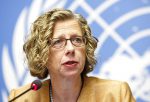 UNEP’s executive director Inger Andersen has branded 2020 “a year when we will have to fundamentally reshape our relationship with nature”.[23] With a population creeping inexorably toward 10 billion, this means reappraising the correlation between human and environmental health – an effort that will implicate every sector, discipline and nation state. This should be framed as a global effort to understand the potential for outbreaks and thus minimize risks to both people and nature.
UNEP’s executive director Inger Andersen has branded 2020 “a year when we will have to fundamentally reshape our relationship with nature”.[23] With a population creeping inexorably toward 10 billion, this means reappraising the correlation between human and environmental health – an effort that will implicate every sector, discipline and nation state. This should be framed as a global effort to understand the potential for outbreaks and thus minimize risks to both people and nature.
Against this backdrop, UNEP is launching the UN Decade of Ecosystem Restoration 2021-2030, focusing on the loss and restoration of traditional habitats. UNEP is also working with governments worldwide on a Post-2020 Global Biodiversity Framework to crystallize issues such as zoonotics in the minds of decision-makers.
The problems of pandemics and climate change are not mutually exclusive. Rather, they reinforce each other, in both strategies and desired outcomes. We may never be able to declare final victory over pandemics, but by taking charge of climate change now we can greatly limit their scope for harm. Only by future-proofing our thinking can we prevent the current crisis being merely the first in an unending cycle of crippling pandemics.
Global perspective helps us lead from the front
At Abdul Latif Jameel, we have long acknowledged the importance of tackling the climate challenge. The tragedy of today’s crisis serves only to reenergize our commitment to creating a cleaner world and confronting the ongoing issue of public health.
Many will be aware of our commitment to green energy and sustainable living. With a focus on environmental and social responsibility, we’re prioritizing clean energy in tandem with reduced consumption of finite resources worldwide.
Across the 18 or so countries where Abdul Latif Jameel Energy is now active, we have major investments in solar power, wind power, water solutions and environmental services. Our energy portfolio projects some 5GW of power across our multiple sites – offsetting a larger chunk of fossil fuels’ damaging effects year by year.
Apart from helping to fight climate change, we’re also deeply committed to advancing knowledge and research into diseases and human health.
In 2019, Community Jameel, partnered with Imperial College London to establish J-IDEA, the Abdul Latif Jameel Institute for Disease and Emergency Analytics (or the Jameel Institute for short). It’s a rapid response research center for predicting and preventing global health crises.
Now, timelier than ever, J-IDEA is proving a hub for leading data scientists, epidemiologists, biostatisticians and aid workers. The team uses analytics and modeling to explore the causes of global health and humanitarian crises, and to find radical new solutions for governments, institutions and communities.
J-IDEA’s first director is Professor Neil Ferguson, renowned for modeling the spread of pathogens such as MERS, pandemic flu, Ebola, Zika and SARS. J-IDEA complements the work of Community Jameel’s other global health collaboration, The Abdul Latif Jameel Clinic for Machine Learning in Health, or J-Clinic, launched in partnership with MIT. J-Clinic focuses on how AI can prevent, detect and treat debilitating conditions such as cancer, sepsis, dementia and other neurological disorders.
It is clear that the world has so far failed to sufficiently prepare for the spread of infectious diseases. Too often we have stood by and let the most vulnerable pay the ultimate price – but now the lives, or at least the livelihoods, of all of us are at risk.
Our resolve is all the greater because coronavirus has definitively disproven the myth that nations are helpless in adapting to the world’s changing needs – too sluggish to act, too unwieldy to change course.
“In the midst of this crisis, it is becoming clear how irresponsible it is merely to accept the rapidly deteriorating state of our planet’s biodiversity and the climate,” says Johannes Vogel, director-general of the Leibniz Institute for Evolution and Biodiversity Research.[24] And I agree wholeheartedly.
This pandemic has shown that when danger is imminent, rapid and consistent action is possible. Tackling climate change and enforcing measures against the illegal trade in wildlife is just as possible as using natural resources for the benefit of all people. We already have the technology; it is the will to act collectively that is lacking.
Now we finally have that will, we must together find a way.
[1] https://www.ft.com/content/052923d2-78c2-11ea-af44-daa3def9ae03
[2] https://www.ft.com/content/052923d2-78c2-11ea-af44-daa3def9ae03
[3] https://www.eia.gov/outlooks/steo/
[4] https://www.ft.com/content/052923d2-78c2-11ea-af44-daa3def9ae03
[5] https://www.york.ac.uk/news-and-events/news/2020/research/pollutionlevelsinukcitiesdropsascoronavirusimpactsondailylifenewdatareveals/
[6] Updated Assessment of the Potential Economic Impact of COVID-19, Asian Development Bank, May 15, 2020
[7] https://www.independent.co.uk/environment/coronavirus-air-pollution-carbon-dioxide-impact-environment-climate-crisis-a9446031.html
[8] https://www.unenvironment.org/interactive/emissions-gap-report/2019/
[9] https://thebreakthrough.org/issues/energy/covid-emissions
[10] https://www.unenvironment.org/news-and-stories/story/coronaviruses-are-they-here-stay
[11] ‘Coronavirus has exposed our arrogant relationship with nature’, Johannes Vogel, Financial Times, April 9, 2020
[12] https://www.nationalgeographic.com/environment/global-warming/deforestation/
[13] https://www.iied.org/covid-19-crisis-shows-governments-can-also-act-save-nature-climate
[14] https://environmentlive.unep.org/media/docs/assessments/UNEP_Frontiers_2016_report_emerging_issues_of_environmental_concern.pdf
[15] https://www.unenvironment.org/news-and-stories/story/coronaviruses-are-they-here-stay
[16] https://theicct.org/sites/default/files/publications/ICCT_CO2-commercl-aviation-2018_20190918.pdf
[17] https://www.unenvironment.org/news-and-stories/story/coronaviruses-are-they-here-stay
[18] https://www.mckinsey.com/business-functions/sustainability/our-insights/addressing-climate-change-in-a-post-pandemic-world
[20] https://www.mckinsey.com/business-functions/sustainability/our-insights/addressing-climate-change-in-a-post-pandemic-world
[21] https://www.iied.org/coming-through-pandemic-right-way
[22] https://www.morganstanley.com/ideas/investing-in-decarbonization
[23] https://www.unenvironment.org/news-and-stories/story/coronaviruses-are-they-here-stay
[24] ‘Coronavirus has exposed our arrogant relationship with nature’, Johannes Vogel, Financial Times, April 9





 1x
1x


 Added to press kit
Added to press kit

